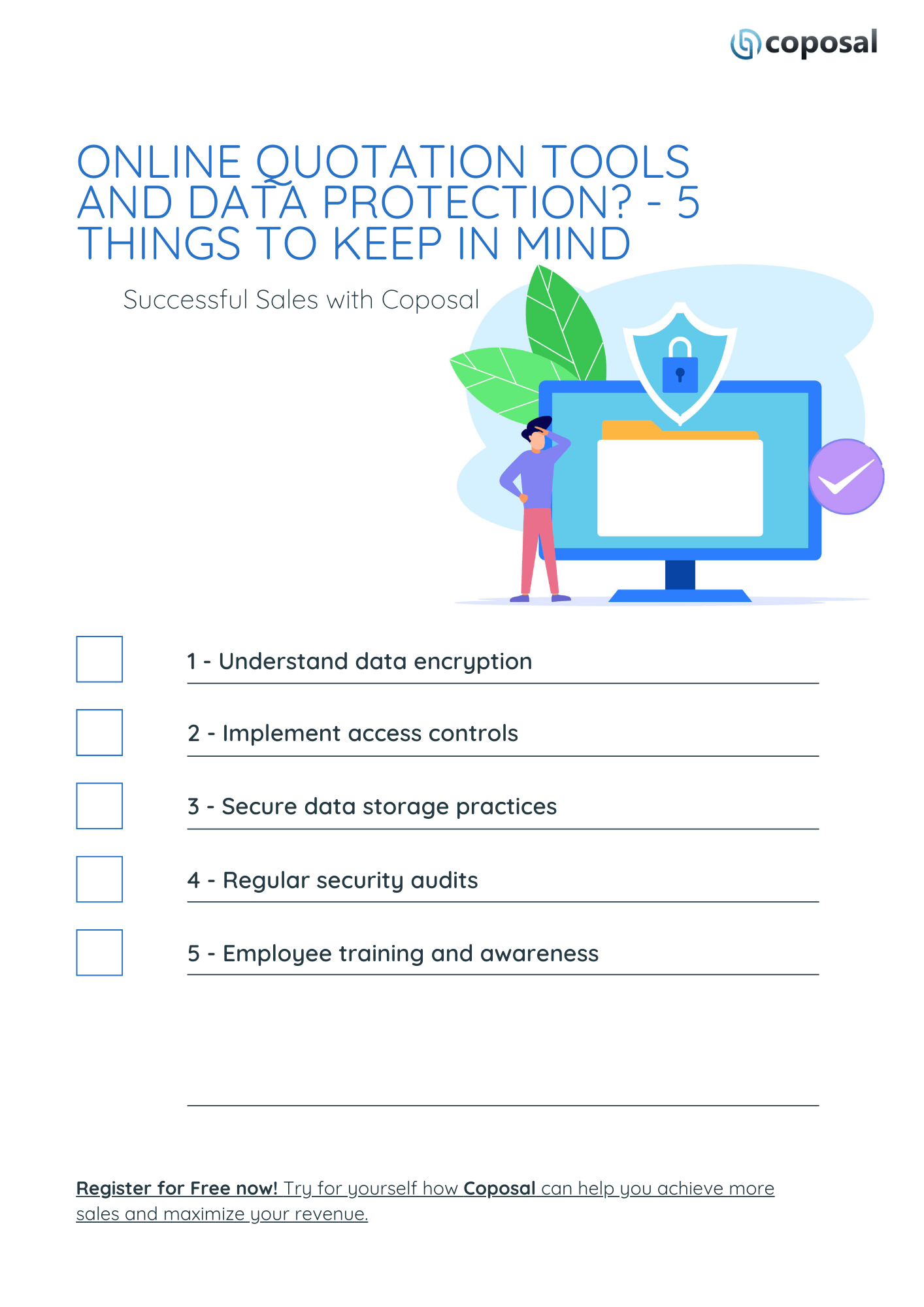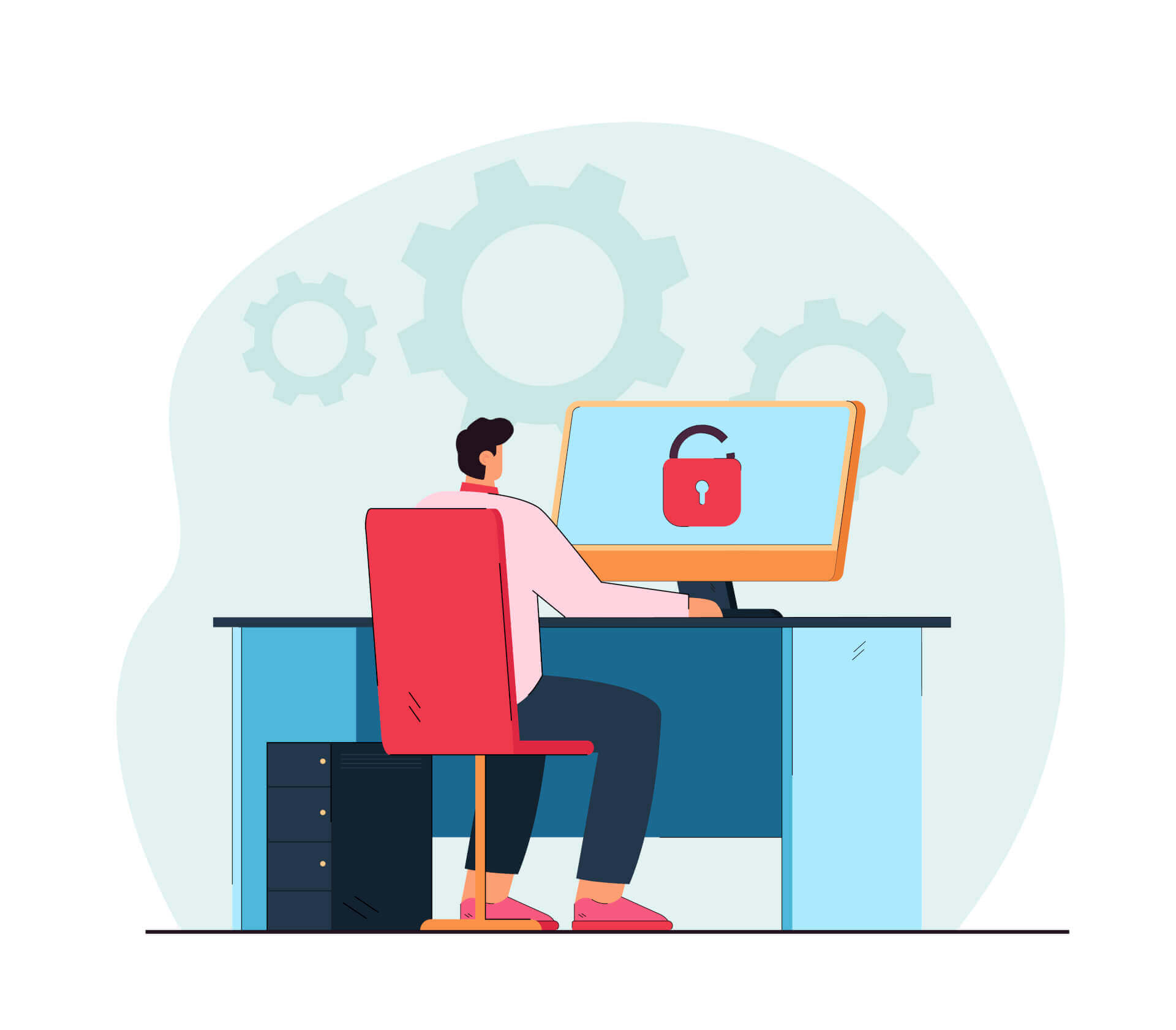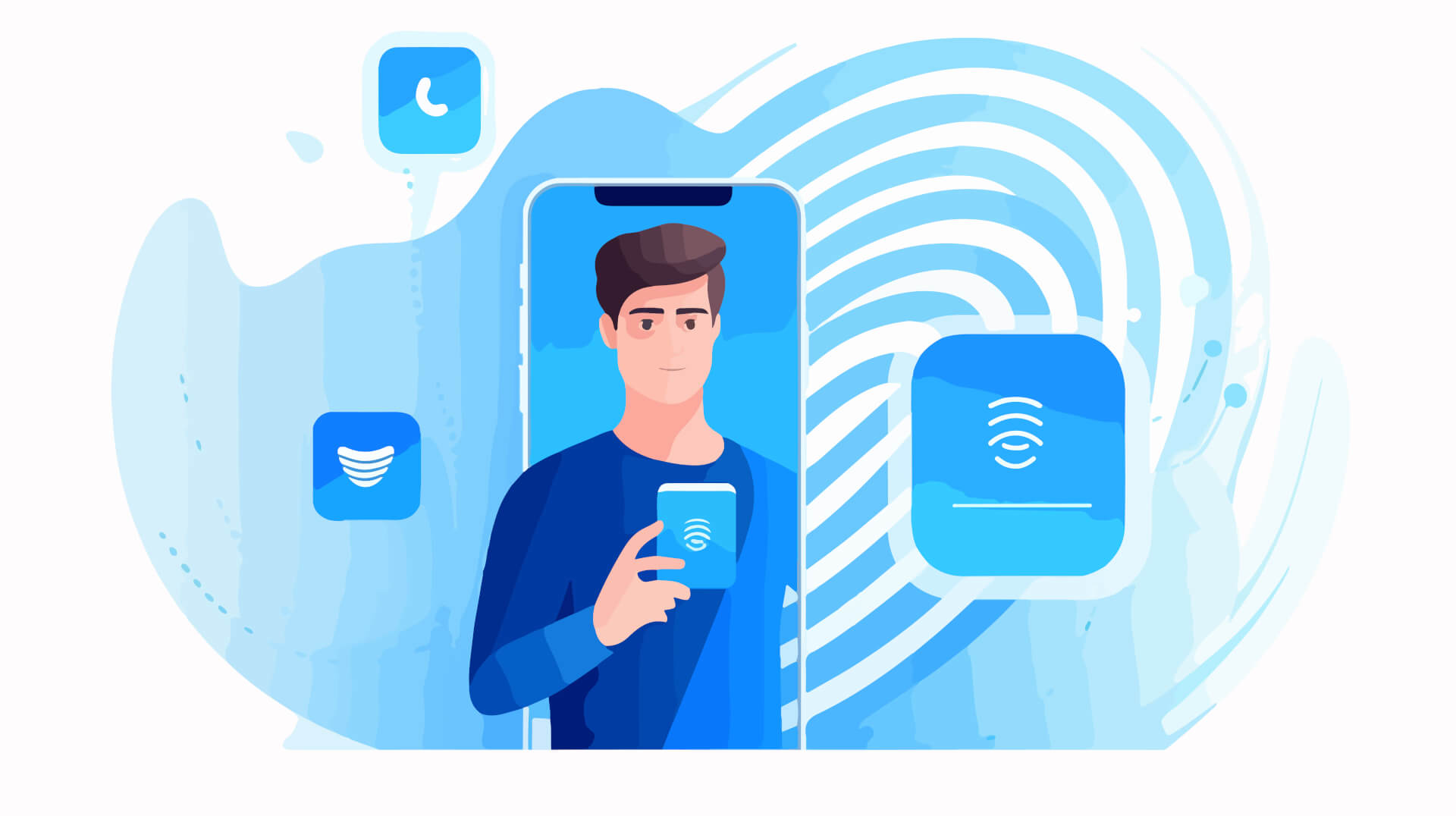
Online proposal tools have become essential for businesses to streamline their operations and improve customer interactions.
However, despite the convenience they offer, it is important to prioritize data protection.
Here we look at five key considerations for ensuring data security when using online quoting tools.
Table of Contents
1 - Understand data encryption
 Data encryption is a cornerstone in protecting sensitive information transmitted through online proposal tools.
Data encryption is a cornerstone in protecting sensitive information transmitted through online proposal tools.
Encryption algorithms encrypt data and make it unreadable by unauthorized parties.
Adopting robust encryption standards ensures that data remains protected from potential breaches or interception attempts.
2 - Implement access controls
Establishing strict access controls is paramount to prevent unauthorized access to confidential offerings and customer data.
Using role-based access permissions ensures that only authorized personnel can view or modify critical information, reducing the risk of data leaks or unauthorized changes.
3 - Secure data storage practices
 Adhering to secure data storage practices is critical to protecting sensitive offerings and customer data from unauthorized access or data breaches.
Adhering to secure data storage practices is critical to protecting sensitive offerings and customer data from unauthorized access or data breaches.
Using encrypted cloud storage solutions and regularly updating security protocols helps strengthen protection against potential cyber threats or data breaches.
4 - Regular security audits
Conducting regular security audits is essential to identify and address vulnerabilities in online proposal tools and data protection measures.
Through comprehensive audits, organizations can proactively mitigate risks, ensuring robust protection against evolving cyber threats and compliance with data protection regulations.
 Reading recommendation: If you would like to learn more about conducting security audits in your company, we recommend the following specialist article: How to run a cybersecurity assessment for your organization
Reading recommendation: If you would like to learn more about conducting security audits in your company, we recommend the following specialist article: How to run a cybersecurity assessment for your organization
5 - Employee training and awareness
 Investing in employee training and awareness programs is critical to fostering a culture of data security within the organization.
Investing in employee training and awareness programs is critical to fostering a culture of data security within the organization.
Training staff on best practices for handling data, recognizing phishing attempts, and adhering to security protocols strengthens protection against internal threats and improves overall data protection efforts.
Conclusion
By implementing robust encryption, access controls, secure data storage practices, conducting regular security audits, and investing in employee training, companies can strengthen their defenses against cyber threats and maintain the integrity and confidentiality of sensitive information.
 Reading tip: If our article helped you and you would like to find out more about the topic of online proposals, we suggest you continue reading here: "Scale your proposal management process"
Reading tip: If our article helped you and you would like to find out more about the topic of online proposals, we suggest you continue reading here: "Scale your proposal management process"
Frequently asked questions about data security for online quotation tools
How does encryption contribute to data protection?
Encryption encodes data into an unreadable format to ensure confidentiality and protect sensitive information from unauthorized access.
What are the benefits of regular security audits?
Regular security audits help identify and remediate vulnerabilities, ensuring robust protection against cyber threats and compliance with data protection regulations.
Why is employee data protection training essential?
Employee training promotes a culture of data security and empowers employees to identify and mitigate potential security risks, ultimately improving overall data protection efforts.
How can companies ensure secure data storage practices?
Companies can ensure secure data storage practices by using encrypted cloud storage solutions and regularly updating security protocols.
What role do access controls play in data protection?
Access controls limit access to sensitive information and ensure that only authorized personnel can view or modify critical data, reducing the risk of data breaches or unauthorized access.
Why is data protection so important when using online proposal tools?
Data protection is critical when using online quoting tools to protect sensitive listings and customer data from potential breaches or unauthorized access.